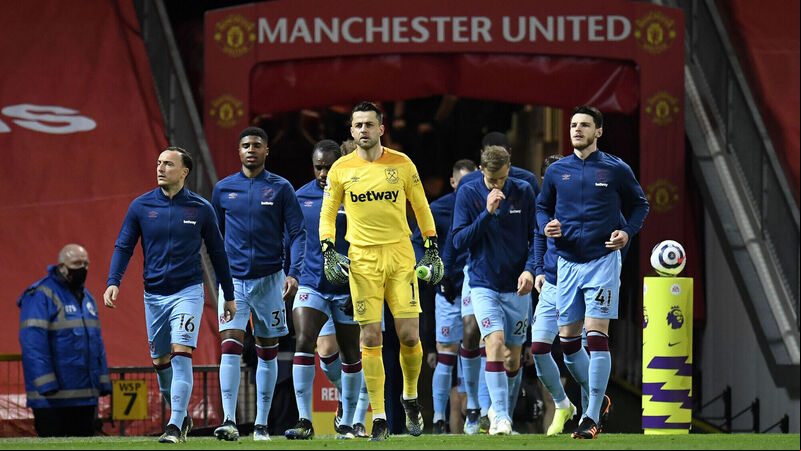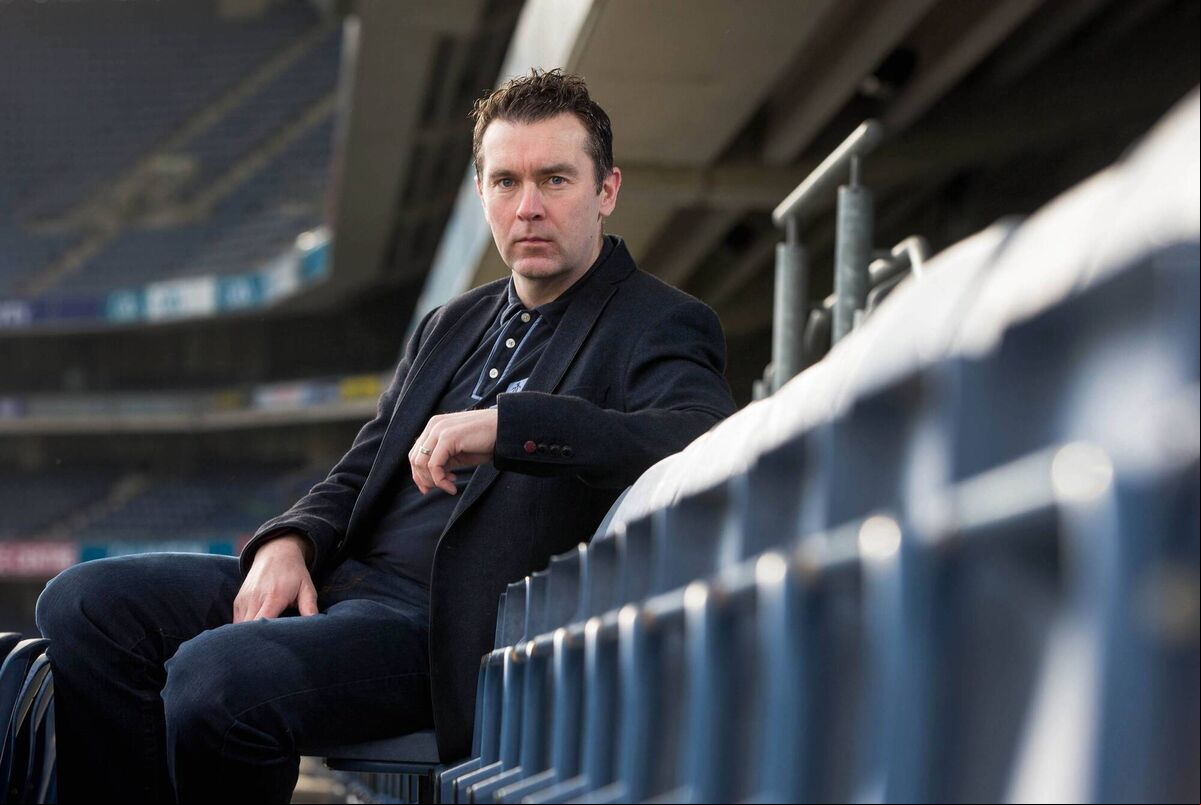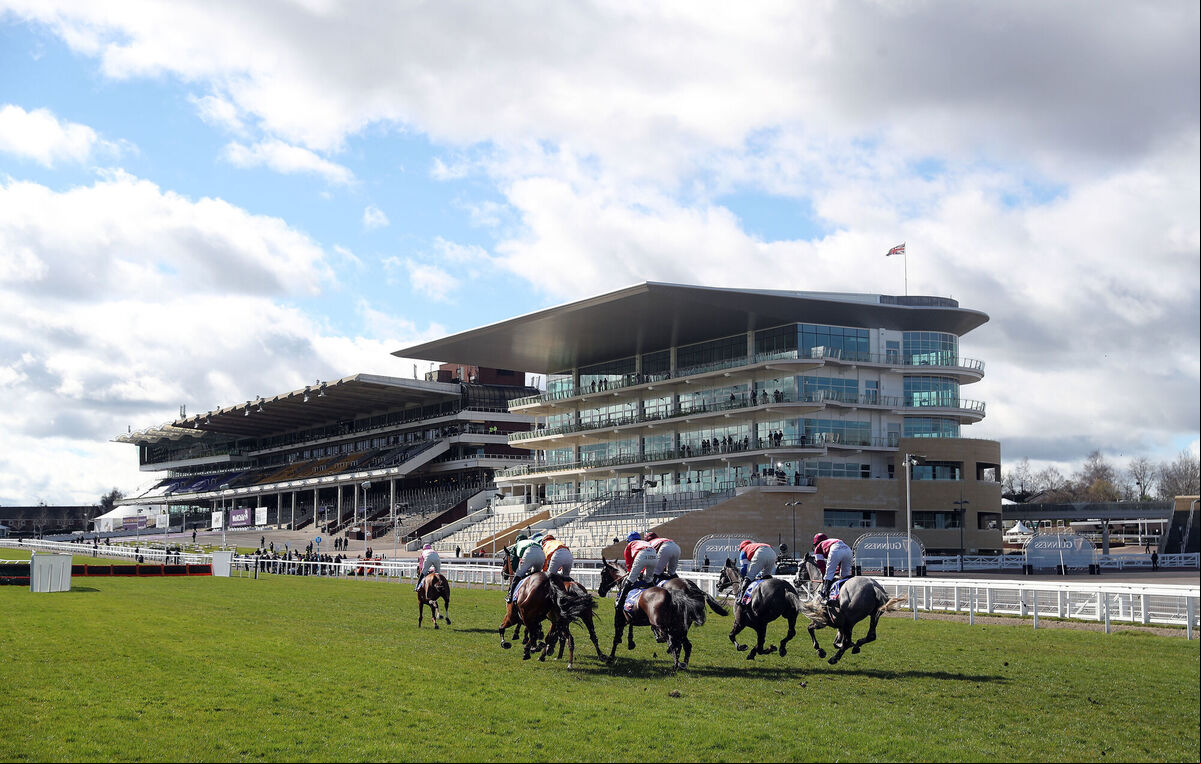Gambling has always been dangerous but online betting has raised the stakes

West Ham United walk out to start for the Premier League match at Old Trafford. Picture: Peter Powell/PA Wire
IT'S an old chestnut of the media game to highlight the perils of betting ahead of the annual orgy of speculation that is the Cheltenham Festival.
And while it looks like a moment of opportunism from media circles to capitalise on a set of circumstances particular to this week's events. It should be ed that it is pertinent to point out our particularly peculiar situation in Ireland, which sees half the country throw aside any sense of normal caution to blow their savings on bets, simply because a horseracing festival in England coincides with our national holiday.
On Monday night, former Armagh footballer Oisín McConville was on RTÉ's show to demonstrate how exposed we are to gambling when watching a sporting event. We are not talking about Cheltenham here, where you could accept the presence of gambling references, but rather a soccer game between McConville's favourite team Manchester United and West Ham United.
Over the space of the 90 minutes, the half-time adverts and the post-match interviews, McConville managed to spot 219 references to gambling companies through adverts, promotions, and kit sponsorships.
It is an amazing figure for just one (supposedly regulated) game and illustrates just how pervasive gambling firms' influence has on our sports-viewing culture. So common is its presence now that it was invisible to my eyes when I watched that same game, a rather poor match, yet it simply slipped my attention. It's just that for me and most of us, the presence of gambling now goes hand-in-hand with watching the game.

The problem with that is, you may think you don't notice it but your brain does. And that's where it is particularly insidious for someone with a gambling problem. For someone like McConville, who has spoken openly about his struggles with gambling in the past, it is not a simple case of ignoring the instances bombarding his senses. For McConville, these references are a constant trigger for him to get something more out of the game than just watching 22 guys running around after a ball.
Why not make it a bit more interesting by putting a wager on it? One can make an average or poor game eminently more interesting by making the consequences of the result actually mean something, TO YOU.
And even here, I now recall the betting advert slogan, "It means more with a bet". And that's the truest thing ever said by a betting company.
The firms' marketing works better than you might think. Figures from 2019 showed, as a nation, we gambled an estimated €10bn or €380 per head of population that year. While that's a disturbing enough statistic, the real concern for McConville is the rise in underage gambling. A Department of Health survey found that 10% of all children gamble on a regular basis. Most start on lottery tickets but as many as 15% of boys aged 15 to 18 regularly bet on horseracing and football matches often through online betting apps.

The betting firms' trawl is wide and even go beyond the sports events they want you to put money on.
Throughout our numerous lockdowns, I have started to view far more content on YouTube than before. Anyone who watches the video platform will know the adverts that pop up at the start or during the video, luckily you can skip most, but not all, of them after five seconds.
In the past month, I've noticed the growing number of adverts from gambling firms laddishly shouting the odds from the coming Cheltenham festival. Now I hardly ever watch sporting videos on YouTube, certainly not horseracing videos, I mostly look at tech, history, and political content, which is then reflected in the adverts I see.
It seemed like the bookmaker adverts were able to up their presence beyond the other rs and that the only reason they were willing to splurge on me was that I was a middle-aged male in Ireland, the perfect demographic to push their betting influence even though my viewing history could no way lead them to the conclusion that I was a gambler. Stereotypical profiling of the Irish male if ever I've seen one.
I don't want betting banned. Driving it underground would have consequences worse than exist. When I grew up, betting was common but it didn't seem to have such an influence on our everyday lives. There certainly wasn't the pressure to get into gambling as a kid.
Gambling was always dangerous but it didn't seem to dominate the consciousness of our youth and vulnerable in the way it does today.







 App?
App?







